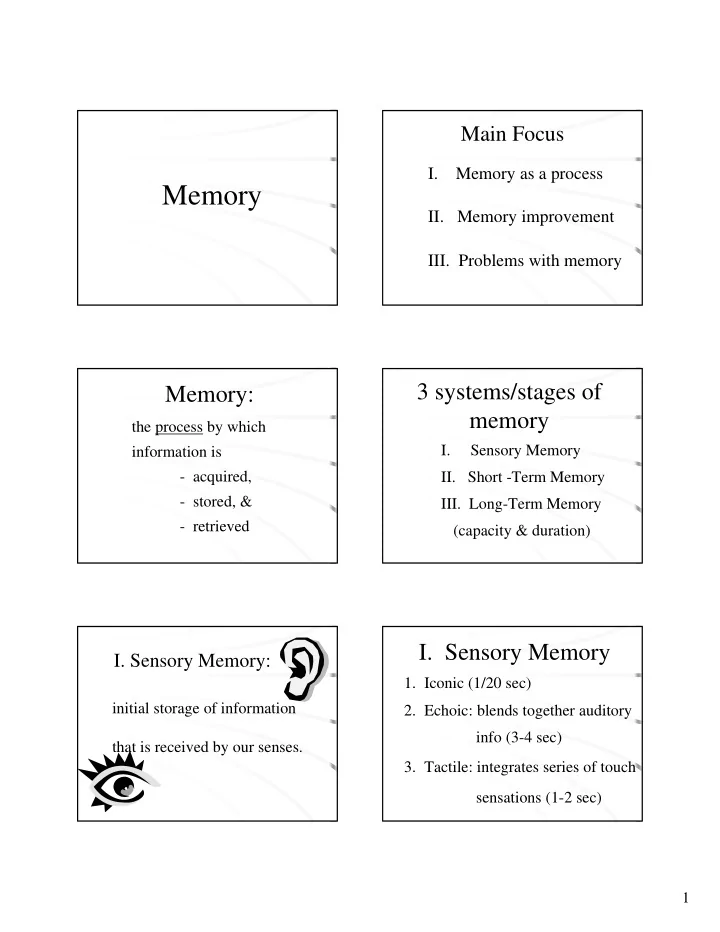

Main Focus I. Memory as a process Memory II. Memory improvement III. Problems with memory 3 systems/stages of Memory: memory the process by which I. Sensory Memory information is - acquired, II. Short -Term Memory - stored, & III. Long-Term Memory - retrieved (capacity & duration) I. Sensory Memory I. Sensory Memory: 1. Iconic (1/20 sec) initial storage of information 2. Echoic: blends together auditory info (3-4 sec) that is received by our senses. 3. Tactile: integrates series of touch sensations (1-2 sec) 1
II. Short -Term Memory Info proceeds to STM because: Chunk is a unit of meaningful information - attention - meaning ST memory: Duration (Peterson & Peterson, 1959) Duration of ST memory If we don’t process the information further it will be gone in 20 sec Long-Term Memory Types of LT Memory Duration: 1. Implicit (procedural) - skills Relatively permanent storage 2. Explicit (declarative) - facts Capacity: Enormous/unlimited a) semantic: general knowledge Quality: b) episodic: specific life events Most meaningful information 2
Where are the memories stored? There is no specific center, they are distributed in various arias of the brain. Memory Improvement 1. Emotional arousal Memory Improvement - stimulate synapses - increase blood glucose level epinephrine (adrenaline) • Flashbulb memories 4. Form bizarre, unusual, 2. Attention exaggerated images spaced vs massed practice carta = “letter” 3. Self-reference effect 3
Context/State - dependent memory memory can be improved if ones body is in the same condition during recall as it was during original learning Brain Damage III. Problems with Memory - Brain damage (amnesia) Amnesia: - Childhood amnesia severe loss or deterioration - Eyewitness Identifications of memory a) Anterograde Amnesia a) Anterograde Amnesia - damage to hippocampus inability to store new LT memories - retain/acquire procedural memory (problem with episodic memory) 4
b) Retrograde amnesia : inability to retrieve memory acquired prior to brain damage 5
Recommend
More recommend